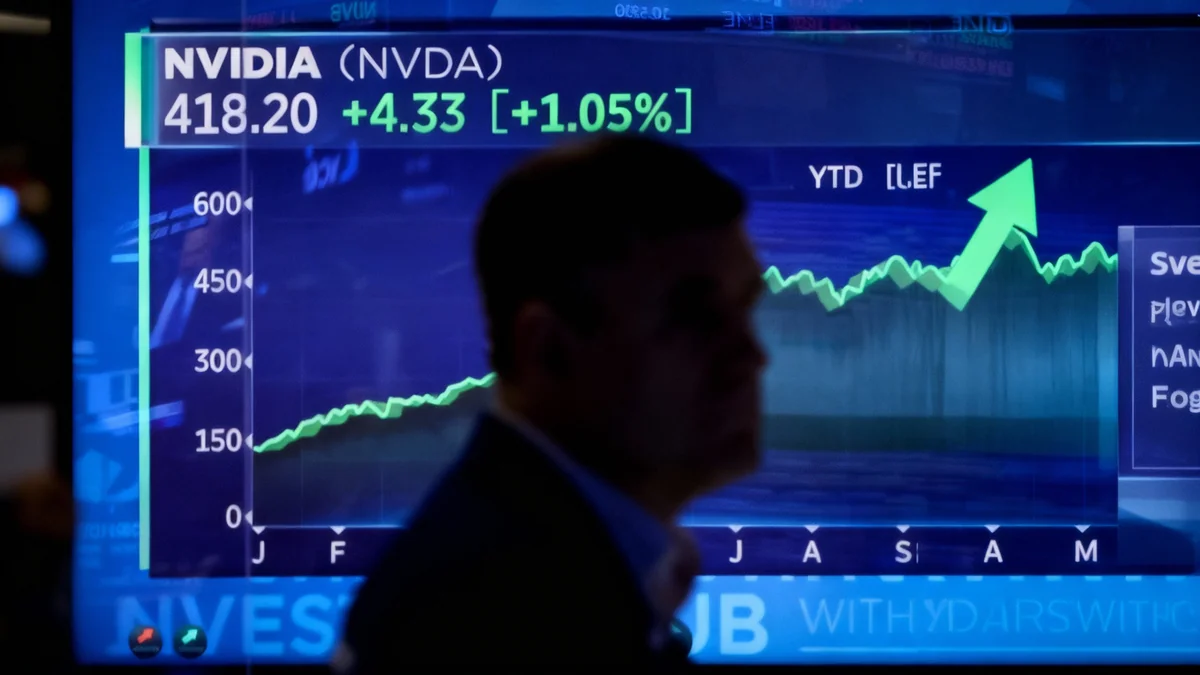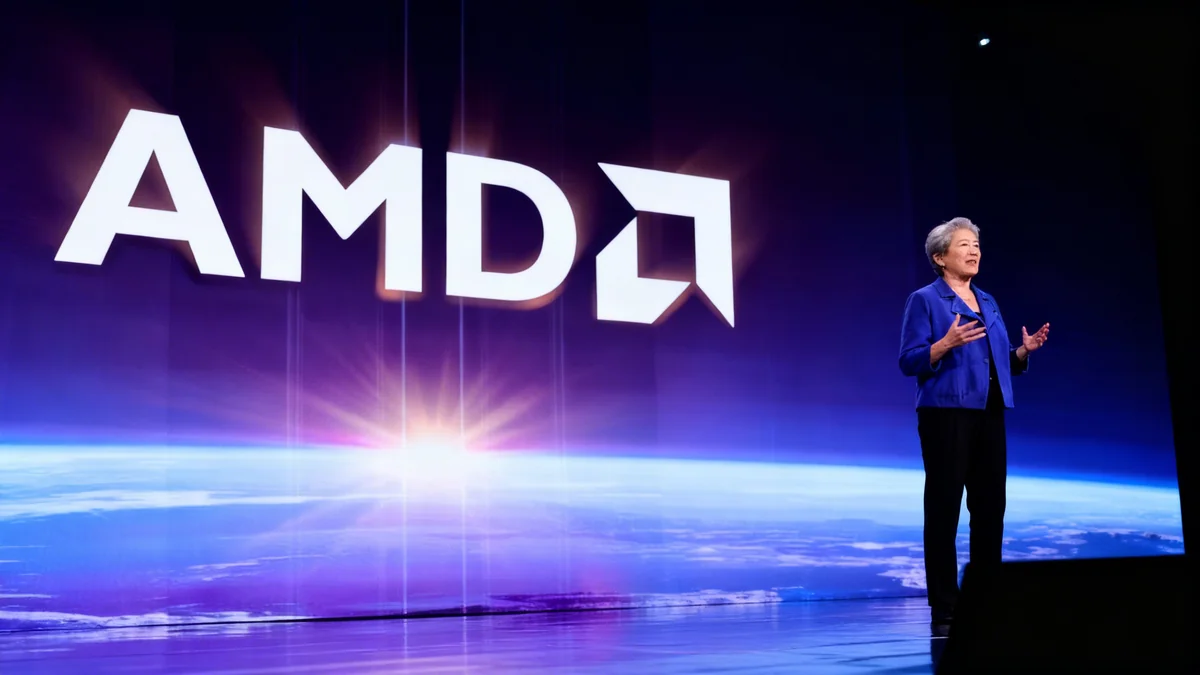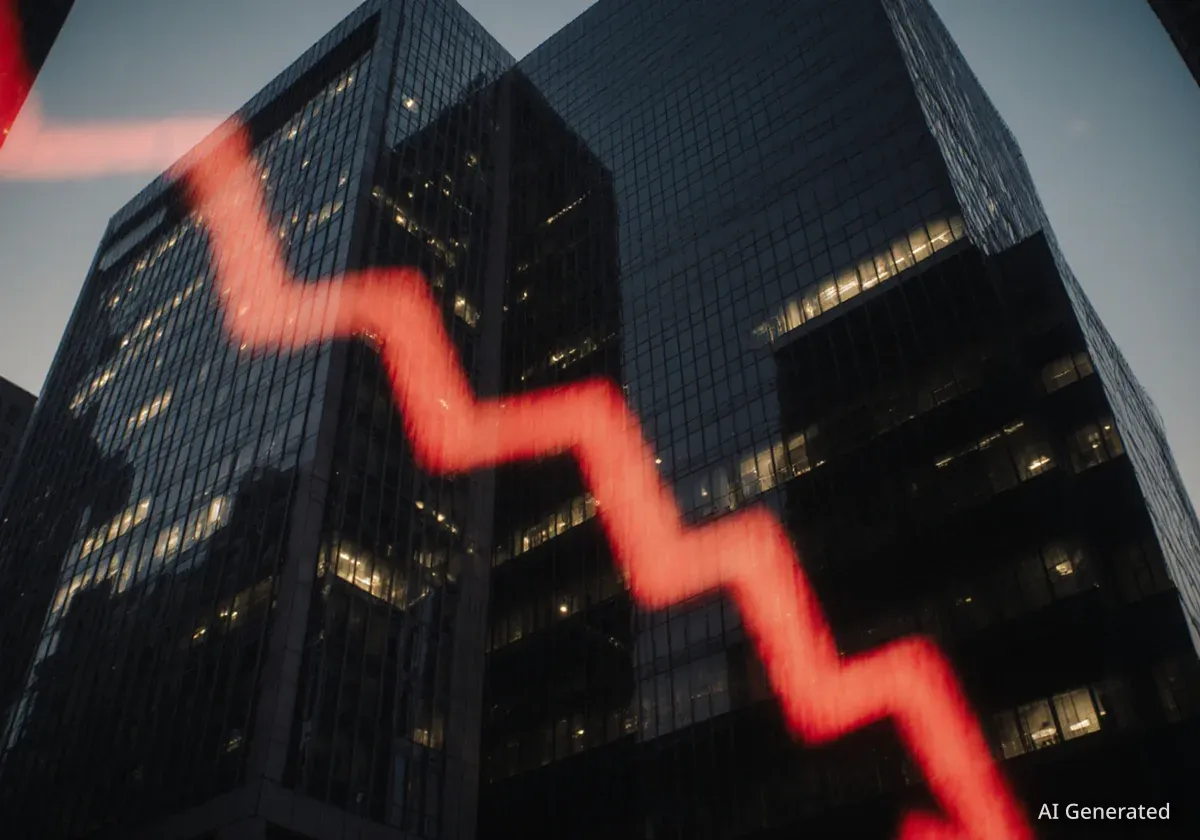The U.S. stock market's recent performance is overwhelmingly tied to the artificial intelligence sector, with a handful of tech giants driving the majority of gains. This concentration has sparked a debate among top financial and tech leaders about whether the market is entering a speculative bubble that could lead to a significant correction.
Investors have poured hundreds of billions of dollars into companies at the forefront of AI development, betting on transformative future growth. However, as valuations soar, prominent voices from Wall Street to Silicon Valley are beginning to express caution, questioning if the current enthusiasm is sustainable.
Key Takeaways
- Artificial intelligence companies are reportedly responsible for as much as 80 percent of U.S. stock market gains this year.
- Leading figures in finance and technology, including Jeff Bezos and Jamie Dimon, have voiced concerns about high valuations.
- The debate centers on whether the AI boom is a sustainable technological revolution or a speculative bubble poised for a correction.
- The broader economy's health is increasingly linked to the performance of a small number of AI-focused companies.
The Engine of the Market
The influence of artificial intelligence on market dynamics cannot be overstated. A staggering 80 percent of this year's stock market gains in the United States can be traced back to companies heavily invested in AI, according to some market analyses. This includes businesses developing foundational models, manufacturing specialized hardware, and integrating AI into their core services.
This surge is fueled by a widespread belief that AI represents the next major technological revolution, comparable to the advent of the internet. Investors are channeling massive capital into these firms, anticipating exponential growth in productivity, efficiency, and new revenue streams across all industries.
The result is a market rally heavily concentrated in a few key players. While the broader market indices show positive growth, a closer look reveals that this growth is not evenly distributed. The performance of a select group of tech titans is masking weaker performance in other sectors, creating a dependency on their continued success.
Whispers of a Correction
Despite the market's upward trajectory, a growing chorus of influential leaders is sounding the alarm. The rapid increase in stock prices for AI-related companies has led to valuations that some experts believe are disconnected from current revenues and profitability.
Historical Parallels: The Dot-Com Boom
The current situation draws comparisons to the dot-com bubble of the late 1990s. During that period, immense speculation about the future of the internet drove tech stock valuations to unprecedented heights, often with little regard for traditional financial metrics. While many of those companies ultimately failed, the era also produced foundational giants like Amazon. The key question today is whether the AI boom will follow a similar pattern of boom, bust, and eventual consolidation.
High-profile figures have publicly shared their concerns. Jamie Dimon of JPMorgan and David Solomon of Goldman Sachs have cautioned clients and investors about the potential for a market downturn. They point to the risk of over-enthusiasm, where investor sentiment outpaces the actual, tangible progress of the technology.
Even leaders from the tech world, who stand to benefit most from the AI boom, are expressing similar sentiments. Figures like Amazon's Jeff Bezos and OpenAI's Sam Altman have reportedly warned that the pace of investment and the heights of valuations may not be sustainable in the short term. Their perspective suggests that even those closest to the innovation are wary of the market's exuberance.
Valuation Versus Reality
The core of the debate lies in a simple question: Are the current stock prices justified? Proponents argue that AI is a foundational technology that will fundamentally reshape the global economy, making today's high valuations a reasonable bet on future earnings.
They believe that the productivity gains from AI will be so immense that they will dwarf previous technological shifts. From automating complex tasks to accelerating scientific discovery, the potential applications are nearly limitless, justifying the hundreds of billions being invested.
A Concentrated Bet
The top 10 largest companies in the S&P 500 now account for over a third of the index's total market capitalization, a level of concentration not seen in decades. Many of these companies are the primary drivers of the AI boom, highlighting the market's dependence on their performance.
However, skeptics argue that the market is pricing in a perfect execution of this future vision, with little room for error. They worry that any delay in technological progress, regulatory hurdles, or failure to achieve widespread adoption could trigger a sharp sell-off.
"When the value of a company becomes detached from its underlying fundamentals, you enter a dangerous territory. We are seeing valuations that assume decades of flawless growth, and history teaches us that such growth is rarely a straight line."
This sentiment highlights the fear that if AI companies fail to meet these lofty expectations, the resulting market correction could be severe. Because these firms now represent such a large portion of the market, a significant drop in their value would have a ripple effect, potentially impacting the entire economy and the retirement savings of millions.
The Path Forward
Navigating the current market requires a careful balance. The transformative potential of artificial intelligence is undeniable, and companies that successfully harness it are likely to see tremendous long-term growth. The technology is already demonstrating its value in fields from medicine to logistics.
At the same time, the risk of a short-term bubble remains a significant concern. Investors and policymakers alike are watching for signs of overheating. Key indicators include:
- Revenue Growth: Are AI companies translating hype into actual sales and profits?
- Wider Adoption: Is the technology moving beyond a few large players and being adopted by smaller businesses?
- Interest Rates: How will macroeconomic factors, like central bank policies, affect the flow of capital into the tech sector?
The coming months will be critical in determining whether the AI-driven market rally is the beginning of a new economic era or a classic speculative bubble. The warnings from industry leaders suggest that while the future of AI is bright, the path for investors may be volatile.





